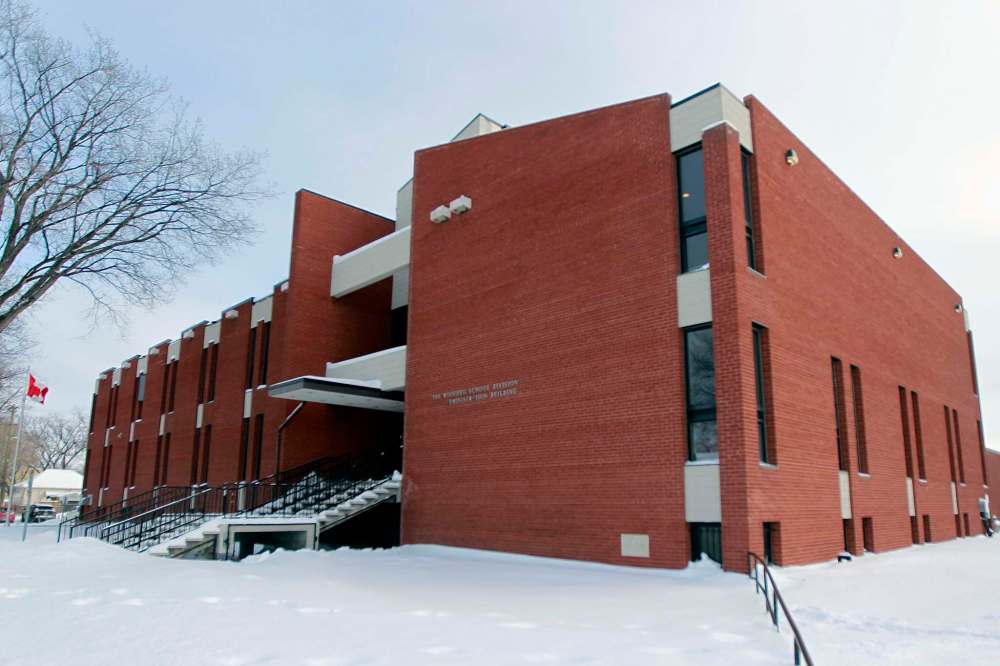Property taxes to rise in WSD
Advertisement
Read this article for free:
or
Already have an account? Log in here »
To continue reading, please subscribe:
Monthly Digital Subscription
$19 $0 for the first 4 weeks*
- Enjoy unlimited reading on winnipegfreepress.com
- Read the E-Edition, our digital replica newspaper
- Access News Break, our award-winning app
- Play interactive puzzles
*No charge for four weeks then billed as $19 plus GST every four weeks. Offer only available to new and qualified returning subscribers. Cancel any time.
Read unlimited articles for free today:
or
Already have an account? Log in here »
Hey there, time traveller!
This article was published 03/02/2020 (1789 days ago), so information in it may no longer be current.
Residents in the Winnipeg School Division will likely see a 1.44 per cent increase in property education taxes next year, as the division continues to raise rates as high as the province’s mandated cap.
For the third year in a row, the province has issued a directive to divisions to cap special requirement increases (which drive up property taxes) at two per cent.
The province’s largest school division released preliminary budget figures for the 2020-21 school year, which comply with the cap — one year after trustees considered surpassing the maximum increase due to budget restraints in planning for the current academic year.

For 2020-21, the division has proposed a budget of $421,221,700. That means residents should expect a 1.44 per cent increase on the property tax levy, the equivalent of about $21 a year, on the average assessed home value of $225,700 within the division’s borders.
“We are able to maintain our programming and not allowed to add anything we think is crucial, but if you don’t have the money, you can’t spend it,” said Arlene Reid, the board’s finance committee chairwoman.
Last week, Education Minister Kelvin Goertzen announced public schools would receive a $6.6-million boost in funding in 2020-21, for the third year. At the same time, Goertzen asked divisions to cut overall management by 15 per cent and set restrictions relating to education property taxes.
While some schools experienced increases to their overall funding, a decrease in enrolment means the Winnipeg School Division will take an approximately 0.4 per cent cut.
Reid said the division has been able to recoup some savings due to recent mild winters, resulting in extra funds that had been budgeted for utility costs in harsher conditions.
In 2019-20, the WSD approved an average education property tax increase of 2.45 per cent, based on the average assessed house value of $214,200 on a home in the division.
Division spokeswoman Radean Carter said while the two per cent special requirement cap remains the same as last year, the property tax percentage has decreased, in part, due to increased assessment values of houses and businesses in the division.
Carter called this year’s budget “a stand pat” that will ensure there’s enough revenue to address inflation on required expenses, such as the Canada Pension Plan, Employment Insurance premiums, and payroll taxes.
All of the other Winnipeg-area divisions continue to crunch numbers on their education property taxes as they prepare budgets for March. Spokespeople for River East Transcona, Seven Oaks, Louis Riel, St. James-Assiniboia, Pembina Trails and Seine River said their boards’ planning processes are already underway.
Public consultation meetings are scheduled across the city in the coming weeks.
The Division scolaire franco-manitobaine doesn’t have taxation power. The province collects taxes from division households across the city on behalf of it.
maggie.macintosh@freepress.mb.ca
Twitter: @macintoshmaggie
Funding for the Free Press education reporter comes from the Government of Canada through the Local Journalism Initiative

Maggie Macintosh
Reporter
Maggie Macintosh reports on education for the Winnipeg Free Press. Funding for the Free Press education reporter comes from the Government of Canada through the Local Journalism Initiative.
Our newsroom depends on a growing audience of readers to power our journalism. If you are not a paid reader, please consider becoming a subscriber.
Our newsroom depends on its audience of readers to power our journalism. Thank you for your support.
History
Updated on Tuesday, February 4, 2020 8:30 PM CST: Fixes byline


